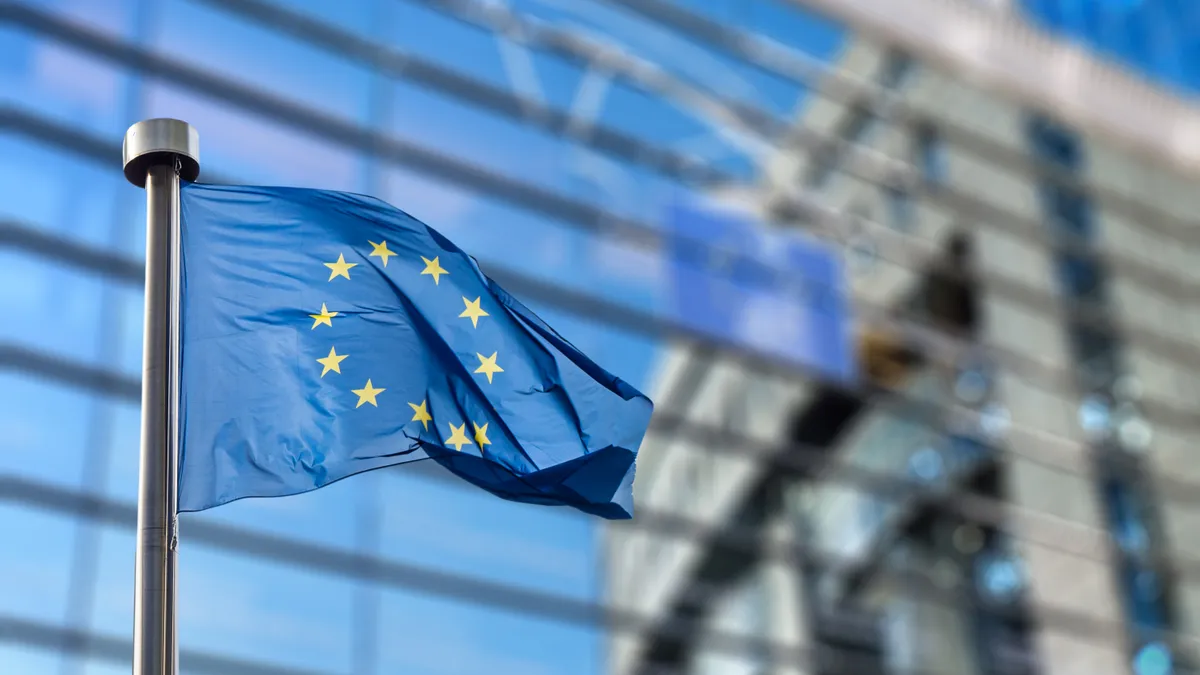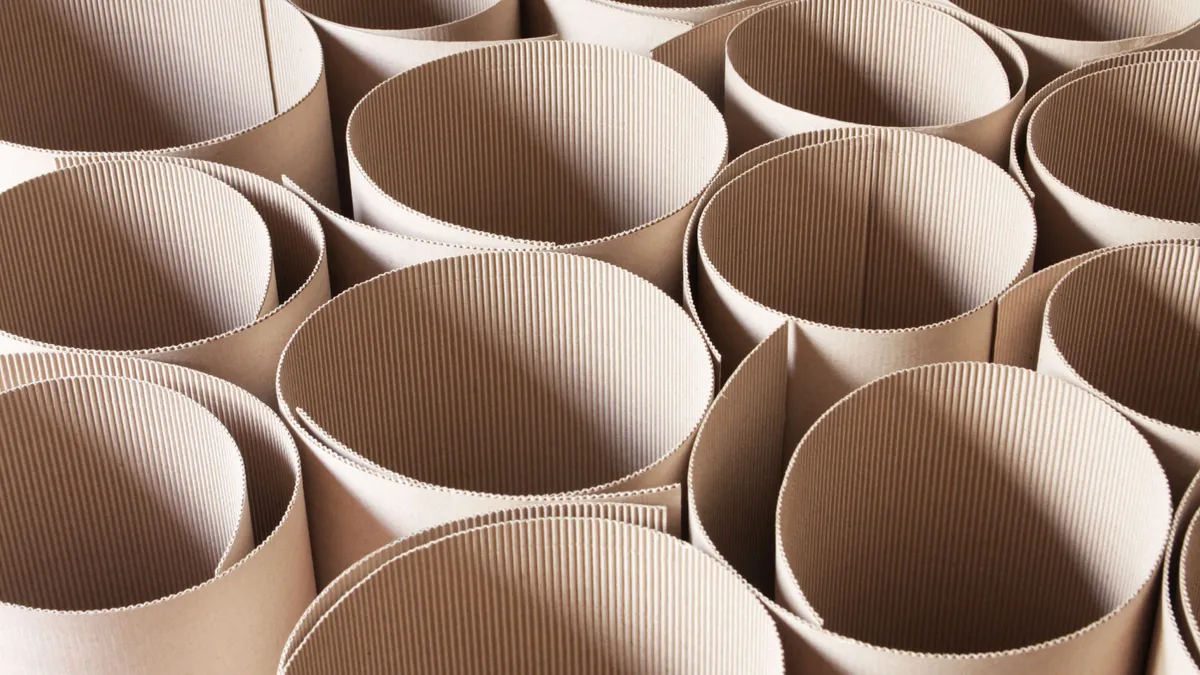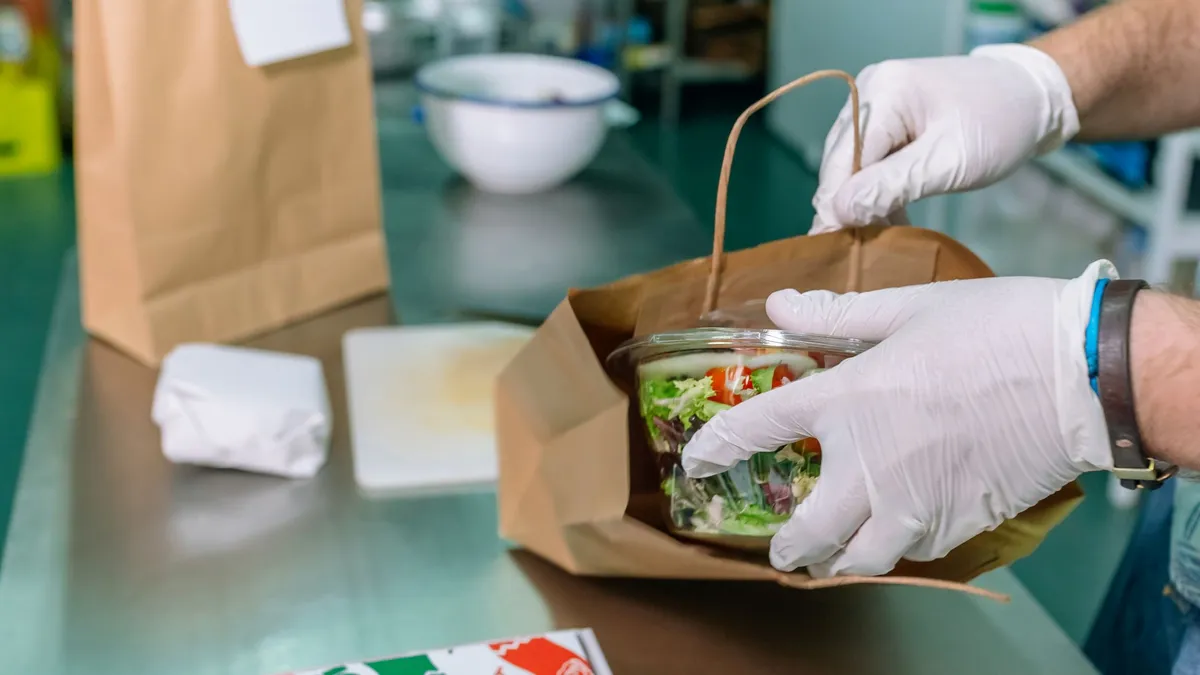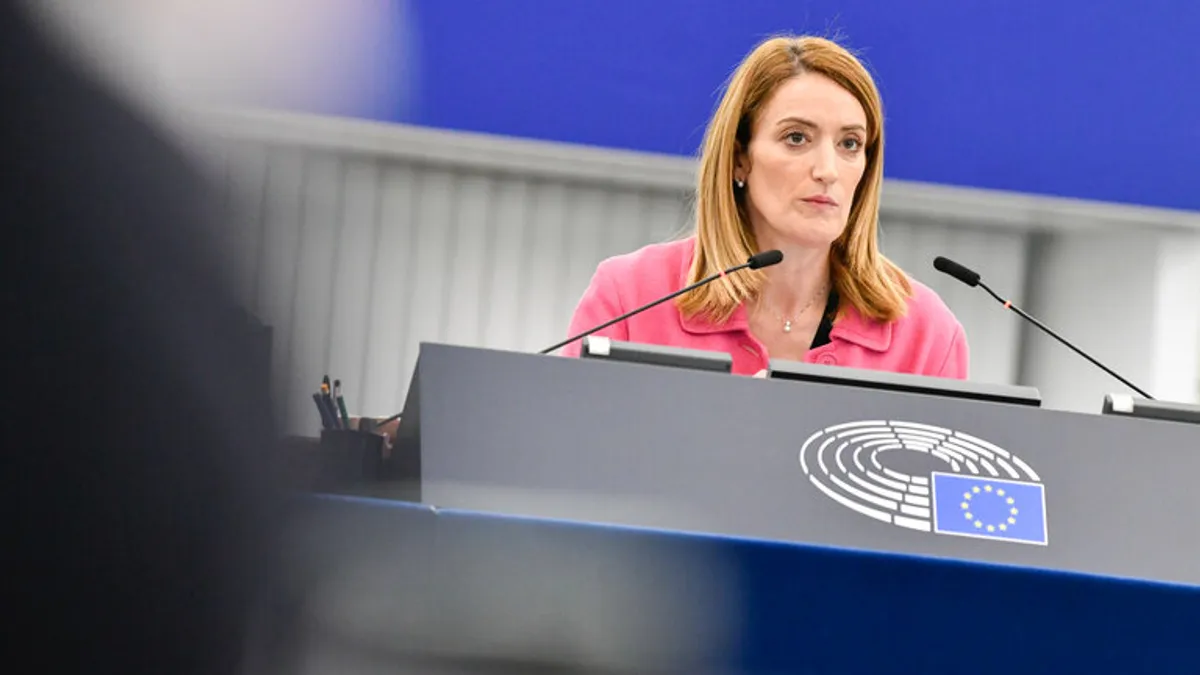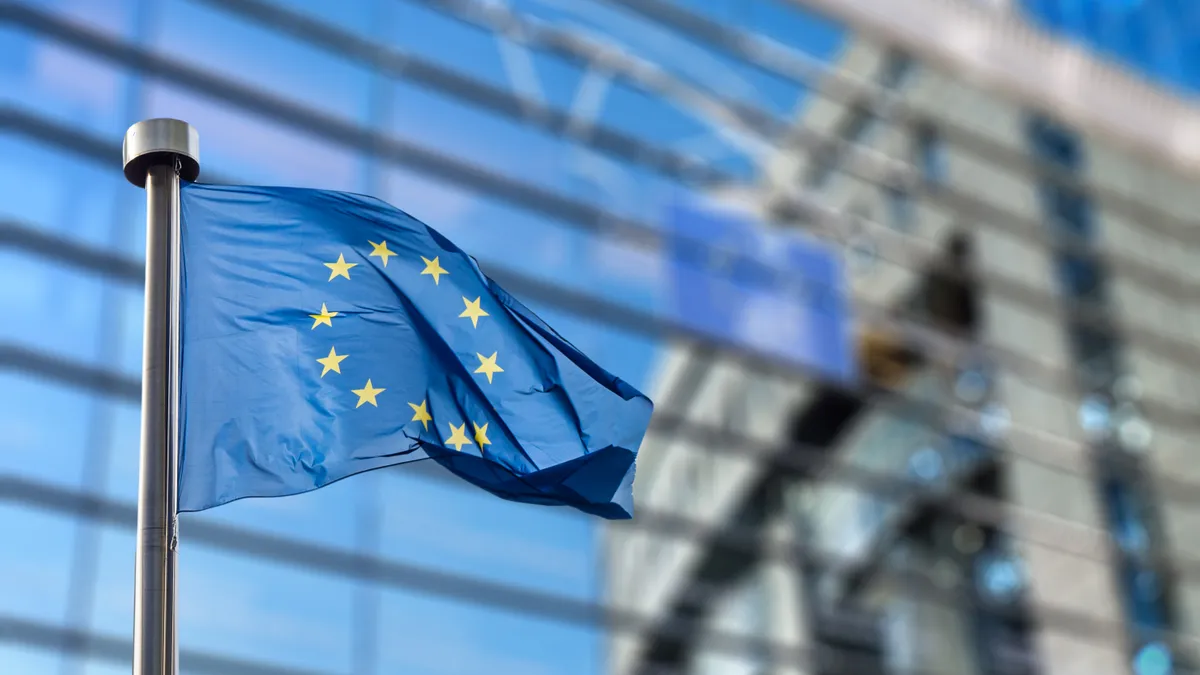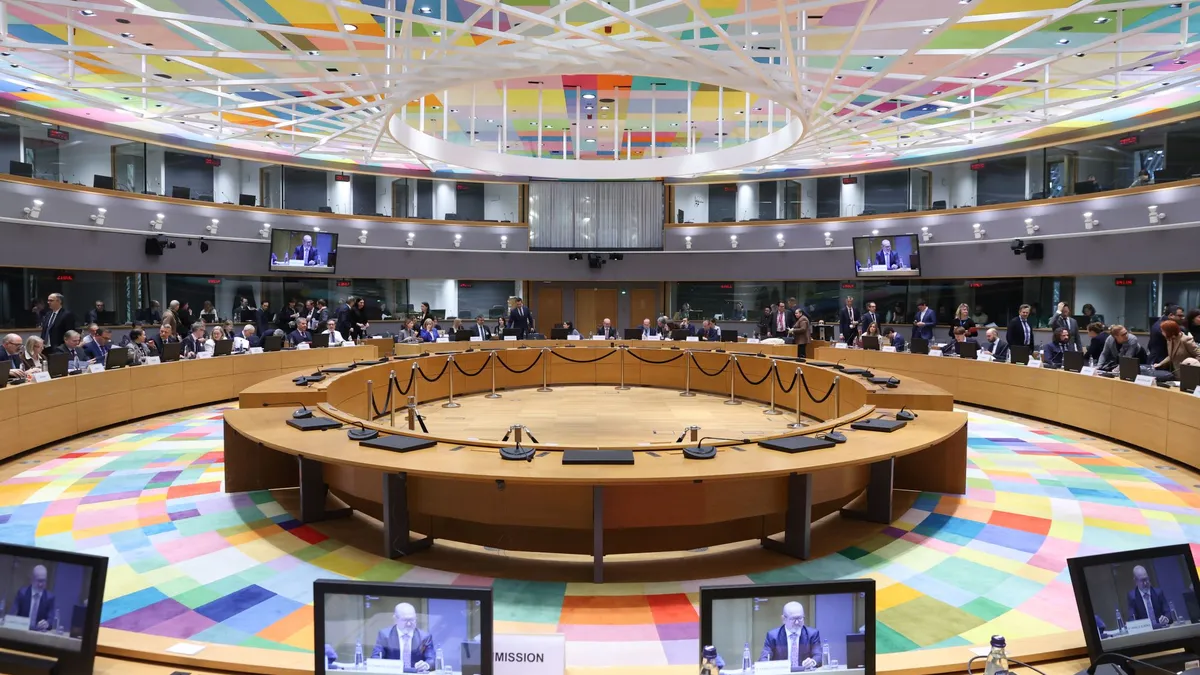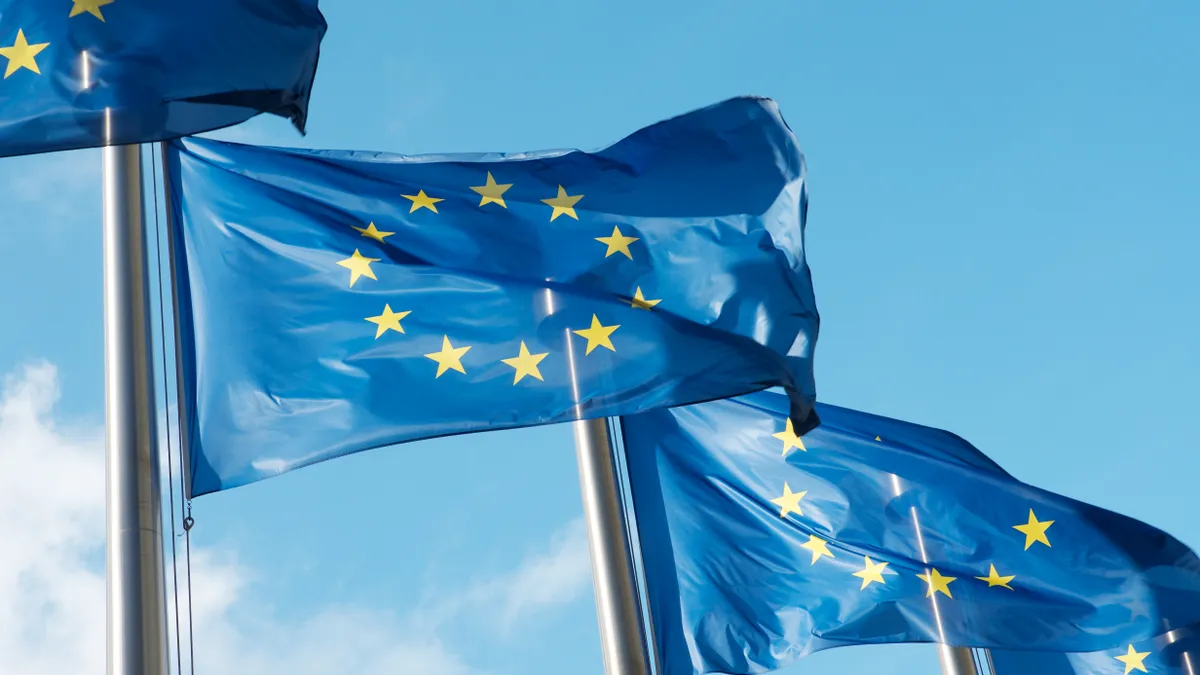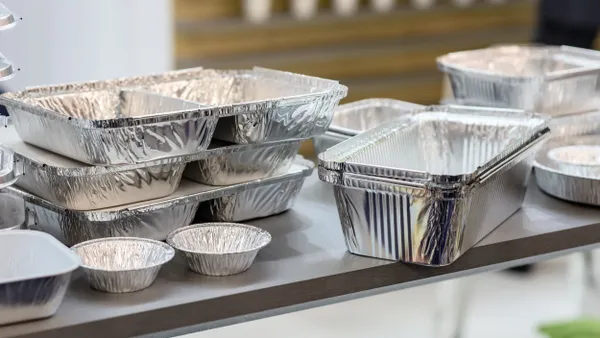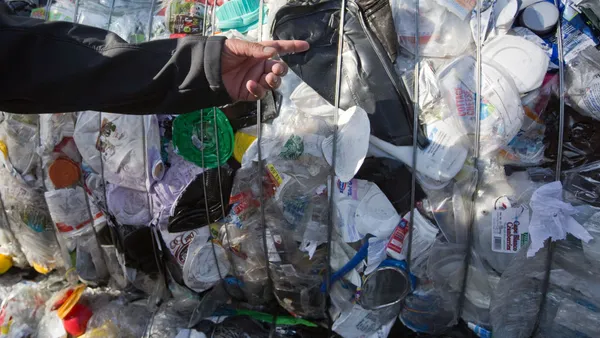Dive Brief:
- European Parliament voted Wednesday to adopt its position on new EU-wide packaging rules, supporting phased reductions in packaging, requirements for all packaging to be recyclable and bans on intentionally added per- and polyfluoroalkyl substances and bisphenol A in food-contact packaging, among other provisions.
- The regulation seeks to require waste reduction of 5% by 2030, 10% by 2035 and 15% by 2040 “by keeping packaging to a minimum in terms of weight and volume, while maintaining safety and functionality.” Members of Parliament want more ambitious plastic packaging waste reductions of 10%, 15% and 20% in those same time frames, according to Wednesday’s press release following the vote.
- The regulation is not yet at the finish line. Next comes negotiations on the legislative text with EU governments. The Environment Council is scheduled to meet Dec. 18.
Dive Insight:
The changes, proposed in November 2022, seek to reduce packaging waste and promote the use of recycled content in packaging. This new regulation would repeal and amend previous directives, aiming to align member states.
Debate this week was preceded by months of robust lobbying, including by major companies such as Smurfit Kappa, McDonald’s and numerous trade groups.
Members of Parliament were considering a report recently adopted by the Committee on the Environment, Public Health and Food Safety. They cast 426 votes in favor and 125 against, with 74 abstentions.
“Parliament is sending out a strong message in favour of a complete overhaul of the EU packaging and packaging waste market. This legislation is essential for European competitiveness and innovation, and aligns environmental ambitions with industrial reality,” said Frédérique Ries, a member of Parliament from Belgium, in a press release following the vote. “Together with effective reuse and recycling policies, we make sure that packaging is safe for consumers, by adding a ban on harmful chemicals in food packaging, in particular PFASs”.
The recent report proposed a separate collection target of 90% by 2029 for all covered packaging, which MEPs endorsed.
Parliament supported restricting certain single-use packaging, including miniature hotel toiletries and shrink-wrap for suitcases in airports, and banning the sale of lightweight plastic carrier bags in most cases.
The press release noted that certain temporary exemptions are expected for recyclability requirements, namely for wood and wax food packaging. French cheese producers and officials recently voiced concerns about how the rules would affect wooden packaging for these products.
A movement toward reusables has also been a point of contention. Earlier versions of the regulation pushed harder for businesses to adopt reusable takeout containers, but goals were eased prior to an Oct. 24 vote vote by the Environment Committee. “MEPs aim to clarify the requirements for packaging to be reused or refilled,” the press release stated. “Final distributors of beverages and take-away food in the food service sector, such as hotels, restaurants and cafés, should give consumers the option of bringing their own container.”
Zero Waste Europe celebrated the toxicity provisions but criticized the weakened reuse targets in favor of recycling.
“We are dissatisfied with the decreased ambition in the text. Granting derogations and exemptions on waste prevention and reuse to ‘appease’ industry players is unacceptable and takes us even further from the ultimate goal of this revision: reducing packaging waste,” said Aline Maigret, Zero Waste Europe’s head of policy, in a statement. The organization was also disappointed that mixed waste sorting was not made mandatory by member states.
International nonprofit Reloop highlighted in a LinkedIn post that while targets for reusable beverage packaging were secured, 2040 targets for other packaging formats were not. Reloop also said that deposit return system provisions were preserved.
The European Paper Packaging Alliance, which counts packaging companies Ahlstrom, Novolex and Sonoco among its membership, previously pushed back against reuse provisions.
“It is very promising to see a large majority of MEPs endorse the importance of recycling, by agreeing that where packaging is collected at a rate of 85% or more, it will be permitted on the market,” said EPPA Director General Matti Rantanen in a statement Wednesday following the vote. “As we approach the European Council’s vote, we call on Member States to mirror the constructive approach of the European Parliament and to adopt a science-based and balanced strategy for packaging waste reduction.”
The Permanent Materials Alliance — made up of the Association of European Producers of Steel for Packaging, European Aluminium, the European Container Glass Federation and Metal Packaging Europe — praised the inclusion of provisions on recyclability performance grades and “high-quality recycling.”
“However, the European Parliament missed the opportunity to have a more robust definition incentivizing materials that can withstand multiple recycling loops without any change to their main material properties, stimulates design for recycling and further boosts effective and efficient recycling,” said Krassimira Kazashka, CEO of Metal Packaging Europe, in a statement.
Europen, whose members include dozens of major packaging companies and brands such as Amcor, Ball, WestRock and Amazon, said in a statement that the development “marks a crucial milestone in shaping the future of Europe's packaging industry,” but “several arbitrary restrictions and measures still remain.” The group also noted that it feels sustainability and waste management requirements are not yet adequately harmonized.
Editor’s note: This story has been updated with additional reactions.



